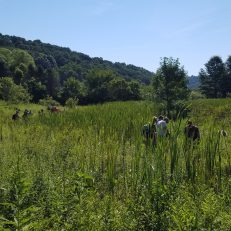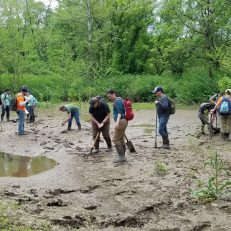Product Description
On-line & On-demand
Elevate your real estate expertise with our immersive 4-hour online course, crafted exclusively for professionals navigating the North Carolina property market. This masterclass demystifies the critical components and best practices of Phase I Environmental Site Assessments (ESAs), a cornerstone of due diligence in real estate transactions. Tailored to the region’s specific environmental and regulatory landscape, this course empowers participants with the knowledge to identify potential contaminants and environmental risks that can affect property transactions, value, and development.
Key Features:
- Focused Instruction: Concise yet comprehensive coverage of Phase I ESA essentials, led by seasoned environmental consultants with extensive experience in North Carolina.
- Interactive Online Classroom: Engage with instructors and peers through a dynamic virtual learning environment, including live discussions and case study workshops.
- Current North Carolina Regulations: An in-depth exploration of North Carolina’s specific environmental regulations, including state amendments to federal guidelines.
- Practical Tools and Approaches: Hands-on demonstrations of the latest methods and technologies used in conducting effective Phase I ESAs.
- Risk Identification and Management: Guidance on how to identify, communicate, and manage environmental risks in real estate transactions.
- Case Studies and Real-World Applications: Examination of North Carolina-specific case studies to illustrate the practical application of Phase I ESA findings in real estate decision-making.
- Resource Library Access: Comprehensive digital resources including checklists, regulatory updates, and templates for conducting and reviewing Phase I ESAs.
What You Will Learn:
- Basics of Phase I ESAs: Understanding the purpose, scope, and components of a Phase I ESA and its role in real estate due diligence.
- Regulatory Framework: Detailed analysis of the legal and regulatory context governing environmental assessments in North Carolina, including the ASTM E1527-13 standard.
- Recognizing Environmental Concerns: Techniques for identifying Recognized Environmental Conditions (RECs) and other indicators of contamination or environmental liability.
- Conducting Site Investigations: Best practices for site reconnaissance, historical research, and reviewing regulatory databases.
- Interpreting and Utilizing ESA Findings: Strategies for translating ESA findings into actionable insights for property valuation, acquisition, and development.
- Navigating Complex Scenarios: Approaches to managing sites with significant environmental concerns, including brownfields and properties with historical contamination.
- Communication and Reporting: Skills for effectively communicating ESA findings to stakeholders and preparing comprehensive reports.
Who Should Enroll:
This course is ideal for real estate agents, developers, investors, attorneys, and any other professionals involved in the acquisition, management, or divestment of real estate in North Carolina who require a working knowledge of environmental due diligence processes.
Certification: Participants will be awarded a Certificate of Completion, signifying their enhanced competency in conducting and interpreting Phase I Environmental Site Assessments in accordance with North Carolina’s real estate requirements.
Take the first step towards mastering the critical aspects of environmental due diligence. Enroll today to secure your understanding of Phase I Environmental Site Assessments and fortify your real estate expertise in North Carolina.
The Swamp School is an established environmental compliance training school. We teach thousands of environmental professionals annually on various ecological related topics. We are pleased to also be a North Carolina Real Estate Commission (NCREC) Certified education provider (#1624).
The class is approved for 4 Continuing Education NCREC elective credits that can count towards your North Carolina Real Estate License renewal. The NCREC approved course number is: 1841.
NCREC Education Provider #: 1624
NCREC Approved Course #: 1841
Important: NCREC requires that licensed Real Estate brokers review and confirm acceptance of the Swamp School’s Policies and Procedures Disclosure (PPD) before they purchase this class. A copy of the Swamp School’s NCREC approved PPD can be downloaded HERE. We will ask you to send a signed receipt of the PPD at the start of the class. This will be done online. The PPD is also included in our school terms and conditions.
Time Limits
Students in an On-Demand Course (asynchronous distance learning) must complete all sections within 30 days of enrollment of the course or by June 10, 2023 whichever comes first.
Technical Support
If you need help with the class please start a chat or give us a call during normal business hours (M-F, 9-4 ET). After hours support requests will be addressed the next business day.
Class Format
This class is offered online as a asynchronous distance learning program. It incudes four (4) hours of subject presentations. Viewing hours are are tracked and it is required that 90% of the subject presentations be viewed in order to receive credit for the class. In addition there are short quizzes at the end of each presentation. These are meant to verify that the student did in fact watch the presentations. Students are given multiple tries to pass the quizzes and they are able to re-watch the videos if needed. However, continuing education credit is only counted for one full viewing of each presentation. Multiple views do not add additional continuing education hours. An overall course quiz grade of 70% is required to receive credit for the class.
Students will be required to have some basic computer and internet skills in order to access and complete this class. Students will be asked to upload several documents for ID verification and the PPD receipt. These documents can be scanned or photographed using a cell phone. Students will need reliable internet access during the course.
The course also incudes a number of video help presentations that are optional and do not count towards continuing education hours. These are provided as aids to the student to accommodate different levels of experience with online learning programs. Additional time should be allowed for getting up to speed if the student is new to online learning.







